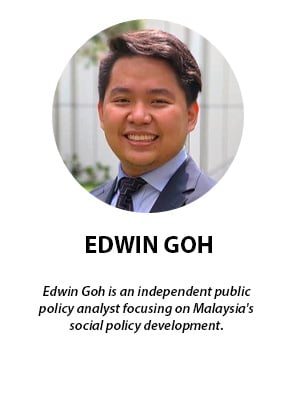
Malaysia is grappling with an impending ageing crisis.
About 6.3 million or 48% of Employees Provident Fund (EPF) contributors under the age of 55 now have less than RM10,000 each in their retirement savings.
In contrast, it is estimated that a person who is retiring in the next 20 to 30 years needs at least RM900,000 to RM1 million to live comfortably.
But addressing the ageing crisis is more than just having enough to retire on.
The challenge ahead is to come up with a visionary and inclusive approach to develop policies to meet the needs of an ageing society.
Ageing policies require intergenerational inputs
By 2022, around 2.4 million Malaysians, or 7.6% of the population, were already aged 65 years and older, making it a “rapid-ageing nation”.
By 2044, the proportion of those aged 65 and above will have risen to 14%, making it an “aged nation” and by 2056, at least 20% of Malaysians will be 65 years and older. That will make us a “super-aged nation”.
The staggering number of people unprepared for retirement, combined with a dwindling birth rate, paints a grim picture for the future.
In response, the government has talked about opening elderly care centres, investing in reproductive health, implementing a universal pension scheme and introducing mandatory salary deductions for parental care.
However, tackling the ageing crisis is more than just protecting the health and welfare of the elderly.
We need a visionary and inclusive approach to building a functioning aged-friendly society.
This requires sustainable retirement homes, active retirement incentives, aged-friendly public transit, comprehensive healthcare and social services for the elderly and climate adaptation plans tailored to the needs of an ageing population.
We need a multi-disciplinary approach to address the multi-faceted challenges confronting us today.
In a multi-cultural society like Malaysia, where care is subjective, it is imperative that we involve people of all ages and backgrounds in formulating policies.
Policymakers must move away from the top-down, silo approach and consider not just the economic, legal and health dimensions but also the nuanced cultural norms, religious values and societal aspect.
But in that context, tough questions also arise.
Should we pass laws to promote filial piety? How do we develop different features of a functioning ageing society?
How do we address the crisis in line with demographic shifts, climate change and rising government debt?
Here, the government must lead and facilitate intergenerational discussions on these questions that touch the very fabric of Malaysian society.
Ultimately, our approach to ageing policies should reflect social, cultural, intergenerational and religious norms and values that characterise our evolving multicultural society.
An intergenerational report for ageing policies
To meet the challenge, we need a projection of what to expect in the generations to follow.
There already are some successful models of what has come to be known as “intergenerational reports”, one of which has been formulated by the Australians.
In the context of Australia, the report covers a 40-year time frame and provides insights into the challenges and opportunities associated with an ageing population, changes in the labour market, healthcare needs and other factors that have an impact on fiscal sustainability.
Drawing from the Australian experience, an intergenerational report for Malaysia would stimulate public discourse, engage citizens of all ages and backgrounds and foster a sense of shared responsibility.
An intergenerational report for Malaysia covering an adequate timeframe should outline demographic projections, economic considerations, government finances and actionable policy recommendations.
It should also extend from the Australian example to capture the rich tapestry of social expectations, cultural nuances and religious norms defining the overall quality of life for our ageing population.
Such a report, led by the ministry of economy, could guide policymakers in contextualising ageing policies in our multicultural society and promote active public participation in shaping Malaysian ageing society.
In conclusion, our path to building an age-friendly society calls for new policy thinking. - FMT
The views expressed are those of the writer and do not necessarily reflect those of MMKtT


No comments:
Post a Comment
Note: Only a member of this blog may post a comment.